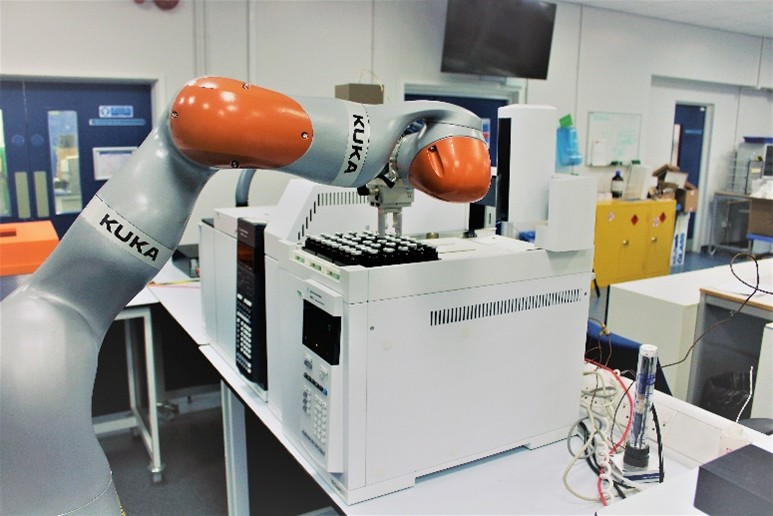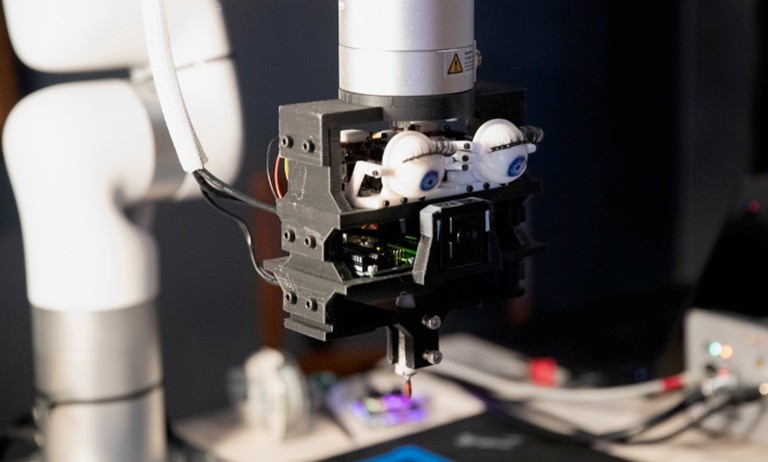
On Sunday 14 September, attendees at the Museum of Liverpool were treated to a glimpse of the present and future of Chemistry with the University of Liverpool’s Robo-Chemist.
This interactive demonstration featured a real robotic arm programmed and controlled to perform chemical experiments in real time by students from the MSc in Digital Chemistry programme, who developed the experiment as part of their course. The robot carefully moved small vials of liquid into automatic magnetic stirrers before placing them in front of a camera system automatically recording and storing data monitoring colour changes in the liquid during reaction.
What made it compelling was how the event brought to life the concept of human-robot collaboration in science. Rather than replacing the researcher, the robot acted as a lab partner, handling precise, repetitive tasks while the user could focus on interpretation, decision-making, and asking questions.
Visitors gathered around the workspace, as chemicals were manipulated, reactions monitored, and data collected live. The presence of an actual robot gave the audience a tangible sense of what lab automation can do, illustrated further in video presentations by PhD students of larger-scale laboratory robots performing experiments under the students’ control in the Materials Chemistry labs at the University.
The demonstration sparked conversations about how robotics might accelerate discovery, reduce human error, and expand lab capacity.
Dr George Darling said “Robots give us the ability to perform experiments at much larger scale, more quickly and in more difficult environments than before, freeing the researcher to develop new chemical insight. They are an important cog in modern research practice exploiting AI tools and automation guided and controlled by scientists.”
The Robo-Chemist served as a vivid demonstration of how the next generation of scientific labs already operate in the Materials Innovation Factory at the University of Liverpool, with humans and machines working side by side. As the festival rolled to a close, this event stood out as a highlight, offering insight on the evolving role of automation in science.
Alongside the Robo-Chemist, another highlight of the festival’s robotics theme was the Robot Artist, who produced intricate drawings live in front of audiences. Developed by Dr Emma Brass, this harnesses two modes of interaction within one robotic system. This work is focused on exploring intuitive, non-programmatic methods for robot interaction.
The robot is fitted with a camera, animatronic eyes and a paintbrush holder. In the first mode, the user can ‘take turns’ with the robot to create an abstract painting. In the second mode of interaction, the robot photographs the user’s face and then paints an outline portrait. This installation explored the creative side of artificial intelligence and automation.
